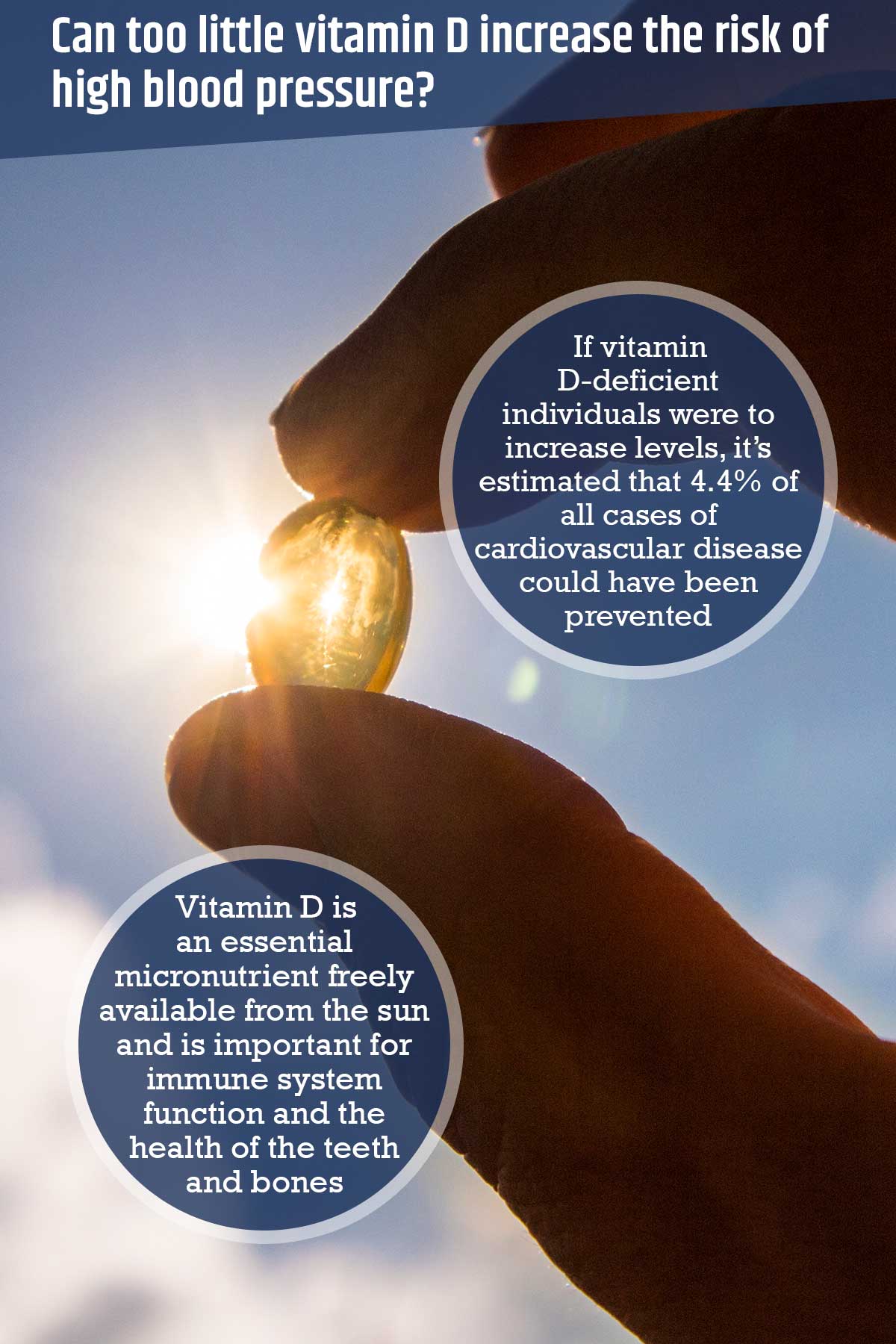Vitamin D is an essential micronutrient freely available from the sun and is important for immune system function and the health of the teeth and bones. According to research, a deficiency of vitamin D could also have a negative impact on cardiovascular health.
Genetic evidence has been identified by researchers for how a deficiency of vitamin D can lead to cardiovascular disease.1✅ JOURNAL REFERENCE
DOI: 10.1093/eurheartj/ehab809
The study reveals that individuals with vitamin D deficiency are more inclined to experience heart disease and higher blood pressure, compared to individuals having normal vitamin D levels.
For individuals with the lowest levels, the risk of heart disease was over double in comparison to individuals with sufficient levels.
Cardiovascular diseases are the main cause of death globally, accounting for approximately 17.9 million deaths each year. Low vitamin D levels are common in several parts of the world, with UK Biobank data showing that 55% of individuals have low vitamin D levels and 13% have severe vitamin D deficiency.
Low vitamin D levels are recorded by approximately 24% of individuals in the US, 23% of Australian individuals, and 37% of Canadian individuals.
A severe deficiency of vitamin D is comparatively rare, but in circumstances where this does happen it’s vital to be proactive and prevent negative effects on the heart. For instance, vitamin D deficiency can be an issue for residential care individuals who might have limited sun exposure.
Vitamin D can also be obtained from food, such as eggs, oily fish, and fortified drinks and foods. Having said this, food is unfortunately a somewhat poor vitamin D source, and even a normal healthy diet doesn’t typically provide enough.
In the case of insufficient vitamin D from the sun, this is one of the nutrients for which we at times should take a daily supplement to maintain the required levels.
Understanding the association between low vitamin D levels and cardiovascular disease is particularly important considering the worldwide prevalence of this dangerous condition.
The study results are interesting as they indicate that if vitamin D levels can be increased within norms, cardiovascular disease rates should decrease.
If vitamin D-deficient individuals were to increase levels to a minimum of 50 nmol/L, it’s estimated that 4.4% of all cases of cardiovascular disease could have been prevented.
This study made use of a genetic approach which allowed the researchers to assess how increasing levels can impact cardiovascular disease risk determined by how high the individual’s actual vitamin D levels were.
The study made use of information from as many as 267,980 individuals that allowed the researchers to provide strong statistical evidence for the association between vitamin D deficiency and cardiovascular disease.



